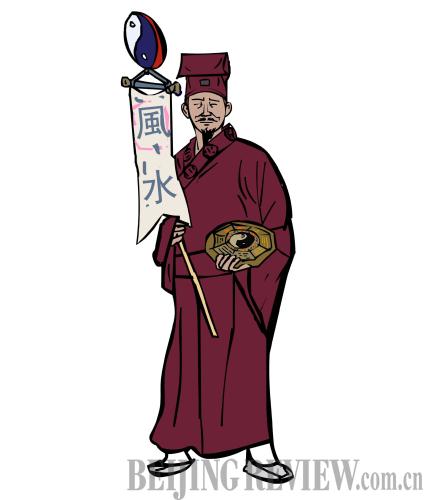|
 |
|
(LI SHIGONG) |
Origin of Fengshui
Fengshui dates back to time immemorial. Throughout history, the Chinese have relied heavily on divination before taking certain actions, depending on naturally inscribed bone or tortoise shell patterns in the Shang Dynasty (around 17th-11th century B.C.) for example.
Ancient Chinese believed man and nature to be integral. All natural elements, including air and water, were essential to sustain life. Moreover, with fortune constantly shifting, much like these elements, ancient people automatically linked their lives with the environment. In a bid to avoid disaster, the Chinese subsequently came to use fengshui as a guiding principle to build palaces, residences, villages and even tombs, pursuing a harmonious relationship between man and nature.
Fengshui, as a metaphysical sect, would never have been established without the efforts of Taoist thinkers during the Warring States Period (475-221B.C.), alongside followers of various other forms of philosophy, including Confucianism. Taoists hoped to explain nature via certain theories, adopting I Ching, China's oldest book of divination, as well as the principles of yin, yang and the five elements (metal, wood, water, fire and earth).
During the Wei and Jin dynasties (220-581), Guo Pu (276-324), a famous scholar and Taoist of the time, comprehensively explained and listed the rules of fengshui in his book Zangjing (The Book for Burials). For example, he believed that a mountain was closely related to determining the number of family members and that water could bring wealth. Therefore, he advocated people to build homes with a hill at the back and a river surrounding them. Because of his remarkable contribution, Guo was regarded as the founder of fengshui theory and its legendary prophet. |
